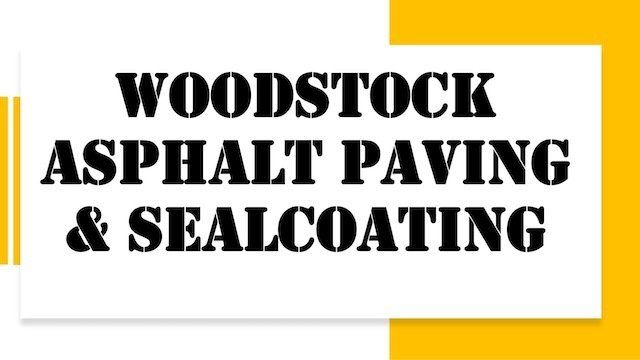How to Select the Perfect Surface for Your Long Driveway
Choosing the right surface for your long driveway is more than just a practical decision—it sets the tone for your property’s curb appeal while standing up to the demands of weather, weight, and wear. With so many options available, it can be hard to figure out where to start or what to prioritize.
From cost and durability to aesthetics and maintenance, this guide will walk you through everything you need to know to select the perfect surface for your long driveway.
Understanding Your Needs and Priorities
Before jumping into driveway materials, take a moment to assess your needs. A long driveway has unique requirements that differ from shorter ones in terms of cost, labor, and upkeep. Here are a few key considerations:
1. Evaluate Your Budget
The cost of materials and installation for a long driveway can add up quickly. Some surfaces, like gravel, are inexpensive upfront but may require ongoing maintenance. On the other hand, options like asphalt or concrete cost more initially but last longer with less need for repairs.
Ask yourself:
- What’s the budget for your driveway project?
- Are you planning to invest more upfront to save on maintenance later?
2. Consider Usage Needs
Is your driveway frequently used by heavy vehicles like delivery trucks or machinery? If so, durability should be prioritized over aesthetic appeal.
Other factors to consider:
- Will your driveway experience extreme seasonal temperatures, such as freezing winters or searing summers?
- Does water drainage matter due to heavy rainfall or snowmelt?
3. Think About Maintenance
Some materials require more upkeep over time. For example:
- Gravel driveways need periodic raking and replenishment.
- Paved options like asphalt or concrete may need resealing every few years.
- Unique materials, like cobblestone or stamped concrete, might call for professional care.
Choose a material aligned with how much time, effort, and resources you’re willing to dedicate to its maintenance.
4. Factor in Aesthetic Appeal
Your driveway is one of the first things people notice when they arrive at your property. Whether you’re aiming for rustic charm, modern minimalism, or a classic polished look, ensure your choice complements your home’s exterior.
Popular Driveway Surfaces and Their Pros & Cons
With your needs in mind, it’s time to explore driveway material options. Each surface type comes with its own benefits and drawbacks, so keep an open mind as you weigh your priorities.
1. Gravel
Gravel is an affordable and rustic option, making it a popular choice for long driveways on large properties.
Pros:
- Budget-friendly compared to other options.
- Easy DIY installation and repairs.
- Allows for efficient water drainage, reducing potholes caused by rain.
Cons:
- Requires regular maintenance, such as raking and replenishing gravel.
- Not ideal for steep slopes, as gravel can shift over time.
- Dust and loose stones may scatter onto your lawn or nearby roads.
2. Asphalt
Asphalt is a durable, smooth surface often chosen for its affordability and clean finish.
Pros:
- Lower upfront cost compared to concrete.
- Durable under heavy use and consistent weather conditions.
- Quick installation process.
Cons:
- Requires resealing every few years to maintain its integrity.
- Sensitive to extreme heat, which can soften the surface.
- Shorter lifespan compared to concrete (about 15–20 years).
3. Concrete
Concrete is a long-lasting option that offers versatility in design and durability.
Pros:
- Long lifespan (up to 30 years or more) with proper care.
- Minimal maintenance requirements beyond occasional cleaning.
- Versatile—can be stamped, colored, or textured to fit your style.
Cons:
- Higher initial cost compared to gravel or asphalt.
- Can crack in areas with freeze-thaw cycles if not properly installed.
- Repairs can be more expensive or challenging.
4. Pavers or Cobblestone
If aesthetic appeal and luxury are top priorities, pavers or cobblestone might be for you.
Pros:
- Unmatched visual appeal; available in various patterns and colors.
- Highly durable and can handle heavy loads.
- Individual pavers can be replaced without redoing the entire driveway.
Cons:
- Requires professional installation, leading to high upfront costs.
- Maintenance is labor-intensive, as weeds can grow between pavers.
- Surface can feel uneven unless precisely installed.
5. Crushed Stone
Crushed stone is similar to gravel but offers a more polished yet natural look.
Pros:
- Aesthetic appeal with a wider range of textures and colors than gravel.
- Excellent drainage properties.
- Budget-friendly and easy to repair.
Cons:
- Requires consistent maintenance to prevent grooves or uneven spaces.
- Loose stones can create dust or scatter onto neighboring areas.
- Not ideal for vehicles with low ground clearance.
6. Tar-and-Chip
Tar-and-chip combines the durability of asphalt with a textured finish, offering a unique middle ground.
Pros:
- Affordable yet more aesthetic than asphalt.
- Low maintenance compared to gravel or pavers.
- Slip-resistant surface due to its textured finish.
Cons:
- Difficult to repair; patches may not match the original surface.
- Limited color and design options compared to other premium finishes.
- Lifespan is shorter than concrete or cobblestone.
Tips for Choosing the Right Surface
To make the final decision for your long driveway, follow these helpful tips:
1. Balance Cost and Longevity
While it might be tempting to go for the cheapest option, remember that long-term costs (like maintenance, repairs, and resurfacing) can add up. Sometimes, paying a bit more upfront for a durable material can save you thousands over time.
2. Focus on Drainage
A long driveway must manage water effectively to prevent erosion and potholes. Materials like gravel and crushed stone are great for drainage, while impermeable surfaces like asphalt may require additional drainage solutions.
3. Test for Durability
If you live in an area with harsh winters or blazing summers, your driveway material should withstand temperature extremes without buckling or cracking.
4. Don’t Skimp on Installation
The quality of work during installation is just as important as the material you choose. Improperly installed driveways can deteriorate prematurely, costing you more in repairs.
5. Consult a Professional
Still undecided? Seek the advice of a construction or landscaping professional. They can provide insights based on your region’s climate, soil type, and local regulations.
Final Thoughts: Pave the Way to Perfection
Choosing the perfect surface for your long driveway doesn’t have to be overwhelming. Start by prioritizing your needs—budget, durability, maintenance, and aesthetics—then weigh the pros and cons of the materials available.
Remember, this is a long-term investment. Whether you opt for the cost-effective charm of gravel or the elegance of pavers, ensure it aligns with your lifestyle and property’s unique characteristics.
Want more advice on tackling home improvement projects? Reach out to us today for expert tips and recommendations tailored to your needs. Happy paving!
Asphalt paving Atlanta, paving companies Atlanta, asphalt repair Atlanta, paving contractors Atlanta
We proudly serve the following cities: Acworth, Alpharetta, Atlanta, Austell, Brookhaven, Canton, Cartersville, Dallas, Decatur, Doraville, Douglasville, Duluth, Dunwoody, East Cobb, Hiram, Johns Creek, Kennesaw, Lilburn, Mableton, Marietta, Milton, Powder Springs, Roswell, Sandy Springs, Stone Mountain, Suwanee, Tucker, Villa Rica, and Woodstock Ga.
Woodstock Asphalt Paving & Sealcoating
Woodstock Ga 30188
404-724-8034


